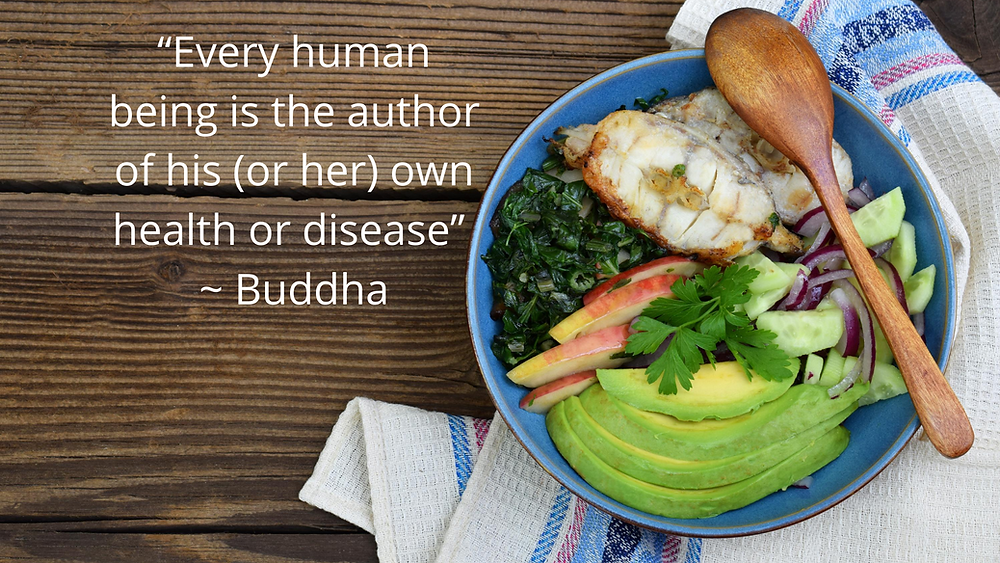
You will often hear us talk about the paleo template that we utilize in our work with weight loss clients, and clients who are looking to improve their overall health and lifestyle approach. Why? Simply put, a paleo approach is rooted in high quality whole food that is nutrient dense, reduces inflammation, and can help in preventing and reversing disease states.
The Standard American Diet (SAD) has changed substantially over the last 100+ years, and is now high in refined and processed foods, filled with additives and ingredients that are not good for our health. There is a reason that obesity, chronic illness, and autoimmune diseases are becoming more widespread year after year. We cannot sustain quality health with low quality food and nutrition, not to mention trying to offer quality health care.
Considering how many processed foods and low quality ingredients have infiltrated the American diet, it can seem daunting to change over to a paleo template, which eliminates all of these foods and focuses on a diet rich in high quality proteins, healthy fats, lots of vegetables, and fruit. Other foods are included as well, but this really is the foundation of this lifestyle.
Where should you start?
Rather than getting overwhelmed by how much your eating may need to change, start by focusing on the 3 top culprits:
Refined Flours and Gluten
Refined Sugars
Industrial Seed/Plant Oils
Many dietary factors can promote inflammation and gut issues, all connected to the overall health of our bodies, but the consumption of industrial seed oils, refined flours and gluten, and excess refined sugar definitely tops the list. The effect of these foods on our health can vary from low energy, weight gain, issues with insulin and blood sugar, brain fog, and anxiety to flare-ups in debilitating chronic diseases like multiple sclerosis, hashimoto’s, rheumatoid arthritis, and so much more. Yet, these foods are a staple in the majority of Americans’ diets. Let’s look a little deeper.
Refined Flours and Gluten
Over 85 percent of the grains consumed currently in the US are in the form of highly processed refined flour, especially corn, wheat, and soy. This is worrisome, considering that refined flour may be connected to weight gain, metabolic issues, cardiovascular disease, issues with blood sugar, and even cancer.
Specifically, there are three main problems with refined flour:
The consumption of refined flour raises blood sugar levels and insulin, causing metabolic dysfunction.
Refined flour is lacking in nutrients and contains harmful additives, ensuring it is shelf stable.
Refined flour displaces healthier foods from the diet, often due to sheer convenience.
Additionally, with wheat being a major ingredient in many processed foods, and hidden in various forms in other foods, gluten-sensitivity is becoming a more common issue that we ourselves see in clients all the time. Celiac disease is estimated to affect 1 in 100 people worldwide, but it is estimated that far more people have non-celiac gluten sensitivity. The severity can range from mild symptoms to pretty difficult health issues, and I can speak to that first-hand.
I have been gluten-free for 15 years, and it changed my health completely when I removed gluten. I had constant digestive issues, gut health challenges, abdominal pain, nutrient deficiencies (even when it was a nutrient I ate ample amounts of), and my immune system was compromised. Doctor after doctor told me nothing was wrong with me, and then a naturopathic doctor figured it out, and wow, did it change my world!
So regardless of how you have “always eaten,” be open-minded to how making a change like this might benefit your health and wellness. The key is to learn what your body needs, what does not work, and how to feel your best!
Refined Sugars
The average American consumes 17 teaspoons (71.14 grams) of sugar every day. That translates into about 57 pounds of added sugar consumed each year, per person. A lot of this sugar consumption is in the form of sweetened beverages, processed foods with added sugar, and sweet treats. You might be surprised how much sugar you are consuming if you do not eat a whole foods diet.
Like refined flour, sugar consumption levels mean that nutritious whole food is being displaced by sugar. Some people would even argue that they feel like they are addicted to sugar, or they may say they have a “sweet tooth”. Eating sugar can become a vicious cycle, as it spikes our blood sugar, and may interfere with hormone signaling, potentially effecting our appetite. Overconsuming calories when eating something sweet can be a difficult problem to manage for some people.
And in the case of sweetened beverages, which are quite high in calories, the average person does not adjust their food-based calories to offset these liquid calories. Weight gain can then be a real issue, especially for those who consume these sugary beverages consistently.
What about the high fructose corn syrup that we hear so much about? Avoiding refined sugar includes high-fructose corn syrup, which evidence shows may contribute to fatty liver, gout, insulin resistance, high LDL cholesterol, and obesity, gut, and immune function. If you read labels consistently, it is alarming how many foods have high-fructose corn syrup, even in foods you would not think they would be in. The primary reason is that it is cheaper, and that is often true when looking at the poor quality ingredients in so many foods. Eating whole food...real food...is always the better way to go!
But you might be asking, can a little refined sugar (NOT high fructose corn syrup) be consumed on a healthy diet? Sure, if it is part of a whole food diet, abundant in nutrients, where sugar is an occasional treat, not a staple. But even then, why eat refined sugar when there are so many great natural sweeteners out there, like honey, coconut sugar, and maple syrup? Natural sweeteners taste so much better in my opinion, but they should still be eaten in moderation.
Industrial Seed/Plant Oils
Contrary to what we’ve been told, industrial seed oils such as vegetable oil, soybean oil, corn oil, and cottonseed oil are not “heart healthy” or otherwise beneficial for our bodies. We actually now have more research indicating that they are in fact making us sick and contributing to the growing spread of chronic illness.
Ideally, consumption of industrial seed/plant oils should be minimized or avoided. These oils are high in calories, low in nutrients, and prone to oxidative damage. They are also high in omega 6 (linoleic acid), which is part of a healthy diet, but promotes inflammation when overconsumed. Ideally, the ratio of omega 6 to omega 3 should be around 3 – 4:1, yet in the US that ratio averages 15:1, limiting the anti-inflammatory effects of the omega 3s. (See our blog on Omega 3s and 6s for more info).
Rather than getting omega 6 from industrial seed/plant oils, instead you can consume linoleic acid in the form of whole foods, such as avocados, nuts, eggs, and chicken. Moderate consumption is fine, as long as there is an adequate intake of preformed EPA and DHA (a form of omega 3) from fish and seafood. If someone is not eating fish or seafood, then limiting linoleic acid (omega 6) is important, so that plant-based omega 3s can be converted into EPA and DHA.
Then why are these oils so prevalent? Unfortunately, the low cost of these cooking oils, combined with marketing by the oil manufacturers, has made these oils a staple in home kitchens and in restaurants. It is quite extraordinary, considering these oils were not consumed in human history until the early 1900s. We would recommend you remove them from your pantry and be thoughtful about where you dine out, and what products you buy. Read the labels! Better yet, eat a whole food-based diet!
Ready to start?
These changes may seem like a lot to tackle, but taking on these 3 culprits is a great place to start, and I would not be surprised if you feel better just from making these changes, not to mention you could drop some weight if you are carrying extra pounds.
Just remember, do what you can each day to make better choices for your health. If you need to break this change into steps, then take out one category at a time. I could provide an argument for each category being first, but find what feels right to you, so you can stick to it and maintain the changes long-term.
Our goal is always helping clients change their behaviors in a way that will bring them a healthier lifestyle for the rest of their lives! We are here if you need support on weight loss or your overall health journey!
One Day at a Time! Yours in health – Jeanna
#cleaneating #eatingforweightloss #weightloss #healthcoaching #virtual coaching




